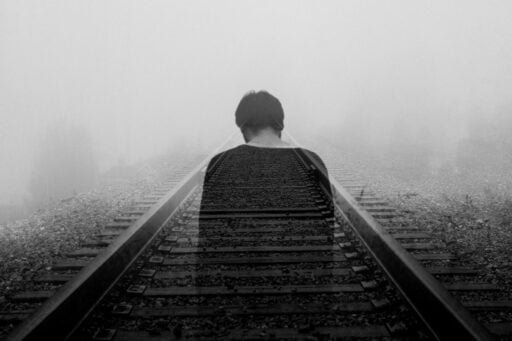Living in Oklahoma can evoke a range of emotions, with a predominant feeling of melancholy looming over the state. The stark landscapes and seemingly endless plains create a unique atmosphere that tugs at the heartstrings. But what exactly contributes to Oklahoma’s reputation as a state with a pervasive sense of sadness? From the disheartening economic struggles to the tragic natural disasters that have ravaged communities, this article explores the reasons behind why Oklahoma has gained a reputation for being a place where melancholy seems to seep into the very fabric of life.
Geographical Factors
Location and Climate
One of the contributing factors to the somber atmosphere in Oklahoma is its geographical location and challenging climate. Situated in the heart of Tornado Alley, the state is prone to severe weather conditions, such as tornadoes and thunderstorms, which can cause destruction and loss of life. The frequent occurrence of these natural disasters creates an atmosphere of anxiety and fear among the residents, as they constantly face the threat of losing their homes and livelihoods. This unpredictable climate also hampers agricultural productivity, affecting the economy and exacerbating the state’s challenges.
Lack of Natural Beauty
Another geographical factor that adds to the sense of melancholy in Oklahoma is the perceived lack of natural beauty. Unlike other states that boast picturesque landscapes and breathtaking vistas, Oklahoma is often seen as dull and lacking in scenic wonders. The predominantly flat terrain and the absence of towering mountains or expansive coastlines contribute to this perception. While the state does possess some pockets of natural beauty, such as the Wichita Mountains Wildlife Refuge and the Tallgrass Prairie Preserve, the overall lack of awe-inspiring landscapes can lead to a sense of dullness and contribute to the overall gloomy ambiance.
Economic Challenges
High Poverty Rates
The economic challenges faced by Oklahoma are a major source of despair for its residents. The state has consistently had one of the highest poverty rates in the United States. This means that a significant portion of the population struggles to meet their basic needs and are trapped in a cycle of economic hardship. High poverty rates can lead to feelings of hopelessness and can contribute to a general sense of despondency among the residents.
Limited Job Opportunities
Limited job opportunities exacerbate the economic struggles in Oklahoma. The state has a relatively small job market, making it difficult for individuals to find stable and well-paying employment. As a result, individuals often have to settle for low-wage jobs with limited growth potential. The lack of diverse job opportunities further compounds the challenges faced by the state, making it difficult for individuals to escape poverty and find fulfillment in their chosen careers.
Reliance on Fossil Fuels
Oklahoma’s heavy reliance on fossil fuels, particularly in the form of oil and natural gas, presents both economic and environmental challenges. While the energy industry has historically played a significant role in the state’s economy, it also makes Oklahoma vulnerable to fluctuations in oil prices and market demand. When the industry suffers, which it often does cyclically, the state’s economy takes a hit, leading to job losses and financial hardship for many residents. Additionally, the environmental impact of fossil fuel extraction and use contributes to concerns about sustainability and the long-term well-being of the region.

Healthcare Issues
Mental Health Crisis
Oklahoma is facing a severe mental health crisis, which has a profound impact on the overall well-being of its residents. The state consistently ranks among the highest in the country in terms of mental health issues, including depression, anxiety, and suicide rates. A combination of factors, such as limited access to mental health services, stigma surrounding mental health, and a lack of adequate funding, contribute to the crisis. The absence of comprehensive support systems for those struggling with mental health concerns leaves many individuals feeling isolated and without the necessary resources for recovery.
Obesity Epidemic
Oklahoma also grapples with an obesity epidemic, which negatively affects the overall health of its residents. Unhealthy eating habits, sedentary lifestyles, and limited access to healthy food options contribute to the high obesity rates in the state. The physical and mental health implications of obesity, such as increased risk of chronic diseases and diminished self-esteem, can further contribute to feelings of depression and overall dissatisfaction.
Limited Access to Quality Healthcare
The combination of a shortage of healthcare providers, particularly in rural areas, and limited access to quality healthcare facilities poses a significant challenge for many Oklahomans. The state has a higher percentage of uninsured individuals compared to the national average, making it difficult for residents to receive timely and comprehensive medical care. The lack of access to essential healthcare services not only contributes to physical health issues but also exacerbates mental health concerns, as individuals struggle to seek necessary treatment for their ailments.
Educational System
Low School Funding
A significant obstacle within Oklahoma’s educational system is the consistently low level of school funding. Undoubtedly, proper investment in education is crucial for the success and well-being of individuals and communities. However, due to various economic, political, and ideological factors, Oklahoma’s education funding consistently falls short. This lack of financial resources hampers the ability to provide students with essential learning materials, extracurricular activities, and support services, hindering their chances of success and driving dissatisfaction among both students and educators.
High Dropout Rates
The consequences of limited school funding are particularly evident in the high dropout rates seen across the state. Without adequate resources and support, students may not receive the education necessary to keep them engaged and motivated. As a result, many students may feel disengaged, unprepared, or unsupported, leading them to drop out of school altogether. This perpetuates a cycle of limited educational attainment and reduced opportunities for future success, contributing to the overall sense of despair within the state.
Lack of Advanced Education Opportunities
While Oklahoma does have some reputable universities, there is a significant lack of advanced educational opportunities compared to other states. This creates a significant hurdle for individuals seeking higher education or specialized training, who are often forced to leave the state in pursuit of their educational aspirations. The brain drain caused by this lack of advanced education opportunities further depletes the state’s workforce and potential for economic growth, leaving many residents feeling limited in their prospects and stifling overall development.

Social Problems
High Crime Rates
Oklahoma struggles with high crime rates, particularly in certain urban areas. Violent crime, property crime, and drug-related offenses contribute to feelings of insecurity and fear among residents. The prevalence of criminal activity not only threatens personal safety but also disrupts communities and erodes social cohesion. High crime rates can lead to a sense of hopelessness and a lack of trust in others, ultimately contributing to a pervasive atmosphere of depression and anxiety.
Drug and Alcohol Abuse
Substance abuse, including drug and alcohol addiction, is a significant social problem in Oklahoma. The state has some of the highest rates of opioid prescription and overdose deaths in the nation. Substance abuse not only has detrimental effects on individual health but also contributes to an array of social and economic issues. It strains families, exacerbates poverty, and burdens the healthcare and criminal justice systems. The devastating impact of addiction on individuals, families, and communities can contribute to a bleak and despondent atmosphere.
Disintegration of Community
The sense of community and social connection in Oklahoma has suffered in recent years. Factors such as urbanization, increased reliance on technology for social interactions, and societal divisions have contributed to a disintegration of community bonds. This lack of social cohesion and connectedness can lead to feelings of isolation and emotional distress. The erosion of a supportive community network further adds to the overall sense of melancholy that Oklahoma residents experience.
Political Climate
Conservative Values Dominance
Oklahoma’s political climate is often characterized by the dominance of conservative values and ideologies. While political diversity is an integral part of a vibrant democracy, the overwhelming prevalence of conservative viewpoints can create a sense of exclusion for those who hold different beliefs or identify with more progressive ideologies. Feelings of political alienation, perceived lack of representation, and resistance to progressive policies can contribute to a pervasive sense of negativity and despair.
Resistance to Progress
Resistance to progressive change and social progress can add to the overall despondency within the state. Some political and social movements that aim to address issues such as racial inequity, LGBTQ+ rights, and environmental sustainability may face opposition and resistance from certain sectors of Oklahoma’s society. This resistance to progress can leave individuals feeling disillusioned and can hinder efforts to create a more inclusive and forward-thinking state.
Lack of Representation
The perception of a lack of representation in government and policy-making processes can deeply impact individuals’ sense of hope and empowerment. When citizens feel that their voices are not being heard or that their concerns are not being addressed, they may become disheartened and cynical about the possibilities for positive change. The absence of diverse representation in government, particularly among marginalized groups, can reinforce feelings of exclusion and contribute to a pervasive sense of desolation.

Environmental Concerns
Natural Disasters
Oklahoma’s geographical location makes it prone to a variety of natural disasters, including tornadoes, severe thunderstorms, and wildfires. The frequent occurrence of these disasters not only poses immediate threats to residents’ safety and property but also has long-term psychological and emotional effects. The constant fear and anxiety surrounding the potential for devastating natural events can take a toll on individuals’ mental well-being and contribute to a pervasive sense of unease and depression.
Pollution
Oklahoma’s heavy reliance on industries such as oil and gas extraction can lead to significant environmental pollution. Air pollution, water contamination, and soil degradation can have detrimental effects on residents’ health and quality of life. The knowledge that their environment is being harmed and that their health may be at risk can contribute to feelings of helplessness and depression. Additionally, the impact of pollution on ecosystems and wildlife can further detract from the overall sense of environmental well-being in the state.
Water Scarcity
Water scarcity is a growing concern in Oklahoma, particularly in regions heavily reliant on agriculture. Drought conditions and unsustainable water usage practices make it challenging to ensure an adequate and reliable water supply for both residents and agricultural needs. The stress associated with water shortages and the potential implications for livelihoods and overall well-being can contribute to a sense of uncertainty and despair. The constant worry about access to basic resources further adds to the already somber atmosphere in the state.
Cultural Factors
Lack of Diversity
Oklahoma is known for its lack of cultural diversity compared to many other states. The predominantly white population and limited representation of diverse ethnic, racial, and cultural backgrounds can lead to a sense of homogeneity and cultural stagnation. The absence of exposure to different perspectives and experiences can hinder personal growth and limit opportunities for cross-cultural understanding. The lack of diversity within the state’s population can contribute to feelings of isolation and a sense of limited cultural enrichment.
Limited Cultural Offerings
In addition to the lack of diversity, Oklahoma also faces a limitation in cultural offerings, particularly in comparison to more cosmopolitan areas. The state may not have the same access to diverse entertainment options, cultural events, and artistic outlets as larger metropolitan cities. A limited range of cultural experiences and opportunities may leave residents feeling that they lack exposure to the richness and vibrancy found in other parts of the country. This dearth of cultural offerings can contribute to a sense of cultural isolation and dissatisfaction among residents.
Brain Drain
Oklahoma experiences a significant brain drain, with many talented individuals opting to leave the state in search of better opportunities elsewhere. This outflow of bright and skilled individuals deprives the state of their talents, creativity, and innovation. The loss of these individuals, particularly those who could contribute to the state’s growth and development, can leave those who remain feeling disillusioned and limited in their own possibilities for personal and professional advancement.
Infrastructural Challenges
Decaying Infrastructure
Oklahoma faces ongoing challenges with its infrastructure, such as deteriorating roads, bridges, and public facilities. The lack of investment and maintenance in essential infrastructure can lead to frustrations and inconveniences for residents. The constant reminder of declining infrastructure can contribute to a sense of neglect and can further reinforce feelings of despair and hopelessness for the future of the state.
Limited Public Transport
The limited availability and efficiency of public transportation contribute to the overall challenges faced by Oklahomans. Particularly in rural areas, the lack of accessible public transit options restricts mobility and makes it difficult for individuals to access employment opportunities, educational institutions, and healthcare services. The reliance on personal vehicles, coupled with the limited public transport infrastructure, can contribute to feelings of isolation and a sense of being disconnected from larger economic and social networks.
Lack of Urban Development
Compared to other states, Oklahoma may face a slower pace of urban development, particularly outside its major cities. The absence of vibrant urban centers with diverse amenities and cultural attractions can limit opportunities for personal and professional growth. The lack of urban development can leave residents feeling that they are missing out on the vitality and excitement found in more bustling metropolitan areas, contributing to a sense of stagnation and dissatisfaction.
Sense of Isolation
Rural Environment
Oklahoma’s predominantly rural environment poses challenges in terms of social connectivity and access to resources. In rural areas, individuals may experience a sense of isolation due to the long distances between communities, limited access to services, and a smaller population base. This isolation can lead to feelings of loneliness and a lack of social support systems, which can contribute to a pervasive sense of desolation.
Lack of Social Connectivity
In addition to the challenges of a rural environment, the lack of social connectivity in Oklahoma can further contribute to residents’ sense of isolation. Technological advancements, while providing new avenues for communication, can also lead to a sense of disconnection from meaningful social interactions. The combined impact of geographic isolation and limited social connectivity can contribute to feelings of loneliness and a lack of belonging within the state.
Brain Drain
As previously mentioned, Oklahoma experiences a brain drain as talented individuals seek better opportunities elsewhere. The outmigration of bright and motivated individuals who may have contributed to the growth and development of the state further perpetuates a sense of isolation for those who remain. The absence of like-minded, ambitious individuals can contribute to the overall feelings of pessimism, limiting the potential for positive change and growth within the state.
In conclusion, Oklahoma faces a multitude of challenges across various aspects of its society, contributing to a pervasive sense of depression and despondency. From the geographical factors of its precarious climate and perceived lack of natural beauty to economic struggles marked by high poverty rates, limited job opportunities, and reliance on fossil fuels, the state faces significant obstacles. Furthermore, healthcare issues, including a mental health crisis, an obesity epidemic, and limited access to quality care, add to the burden felt by residents. The educational system’s low funding, high dropout rates, and limited advanced education opportunities further compound the challenges faced by Oklahoma. Social problems, such as high crime rates, drug and alcohol abuse, and a disintegration of community, contribute to a somber atmosphere. The conservative values dominance, resistance to progress, and lack of representation within the political climate generate a sense of disillusionment and disempowerment. Moreover, environmental concerns, including natural disasters, pollution, and water scarcity, contribute to the overall distress within the state. Cultural factors, such as a lack of diversity, limited cultural offerings, and brain drain, further perpetuate a sense of limitation and isolation. Additionally, infrastructural challenges, such as decaying infrastructure, limited public transport, and a lack of urban development, hinder the state’s progress. Finally, the rural environment, lack of social connectivity, and brain drain contribute to a profound sense of isolation among Oklahoma residents. Addressing these factors and investing in solutions to these challenges can contribute to a brighter future and an improved quality of life for those living in Oklahoma.